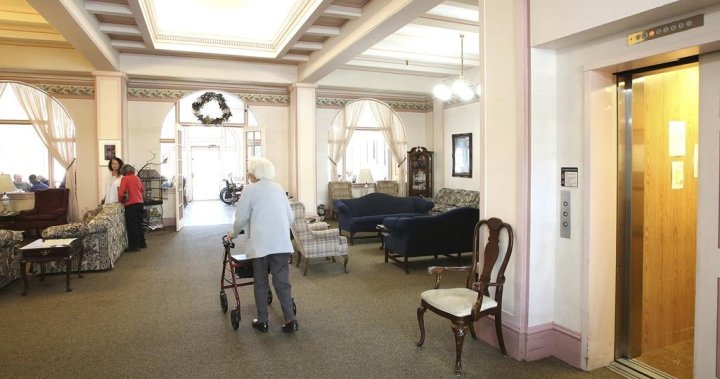The Winnipeg Regional Health Authority (WRHA) held a job fair for home care attendants on Monday, seeing dozens lined up for tests and interviews at Winnipeg’s RBC Convention Centre.
Bria Foster, director for health services with the WRHA, said they’re needed. ” January of last year, our home care visits were around 385,000. In December, we were at 416,000 a month. So that’s just in a year we’ve increased by that much,” she said. “The demand isn’t going to go away.”
To help meet demand, in March 2023 the WRHA introduced a free course to become an uncertified home care attendant, where those meeting outlined criteria can become an uncertified home care attendant in four weeks.
Nazeem Musn, an applicant at the job fair, said he has a business background but he wants to be in the health care industry. “I feel there’s more to give to people that need me,” he said.
The health authority said the program has knocked down the job vacancy rate for home care attendants from 23 per cent in January 2023, to 14 per cent in December.
That equates to around 400 new staff.
“We’ll be going through all of our applicants and scoring interviews and then making job offers, probably in the next two or three weeks,” Foster said, adding they’ve filled 203 uncertified positions since March 2023.
“It’s really helped our home care to stabilize because we were cancelling a ton of visits last year — five per cent, which equates to, you know, several thousand visits,” she said.
Get the latest Health IQ news.
Sent to your email, every week.
Shannon McAteer, health care coordinator with CUPE Manitoba, said the program provides some relief in an understaffed and underpaid area of health care, but it’s not a cure-all.
“I do know we’re still working short there. There’s still a staffing crisis,” she said, adding that it takes time for an uncertified worker to become familiar with on-the-job training.
“It will be helpful, I think, once they’re trained up and they’re able to work independently,” McAteer said.
McAteer would also like to see tuition rebates for people looking to get certified, because “people just can’t afford it because they can’t quit their jobs to go to school full time and then pay tuition on top,” she said.
“I think (the free course) should be expanded, and it should be offered for a long period if time,” she said, adding home care workers should be paid more.
McAteer said this would make it easier to recruit and retain, as staff wouldn’t need to work so hard to make a living.
“Sometimes they work ridiculous hours, or they work on their off days,” she said, “and we do find that folks will — because there’s not a lot of full-time jobs in health care, certainly not for health care aides — folks will have two jobs.”
Yungnt Long, an international student with the University of Manitoba said time is a factor for him. “I don’t have many courses this semester, so I have some spare time,” he said, adding that being a home care attendant would also be a great way to learn Canadian culture, contribute to society, and acknowledge the contributions of those before him.
“For the elderly people, I really respect them,” he said. “I want to learn from them.”
Foster said certified workers are paid just over $23 an hour, which is $3.50 higher than uncertified home care attendants.
By the end of the day, the WRHA hopes to have enough training candidates to fill 97 vacancies, for a job that takes hard work and heart.
“Being something that’s more meaningful than customer service, commercial entity, I feel that there’s more to give,” Nazeem said.
— with files from Global’s Iris Dyck
© 2024 Global News, a division of Corus Entertainment Inc.




